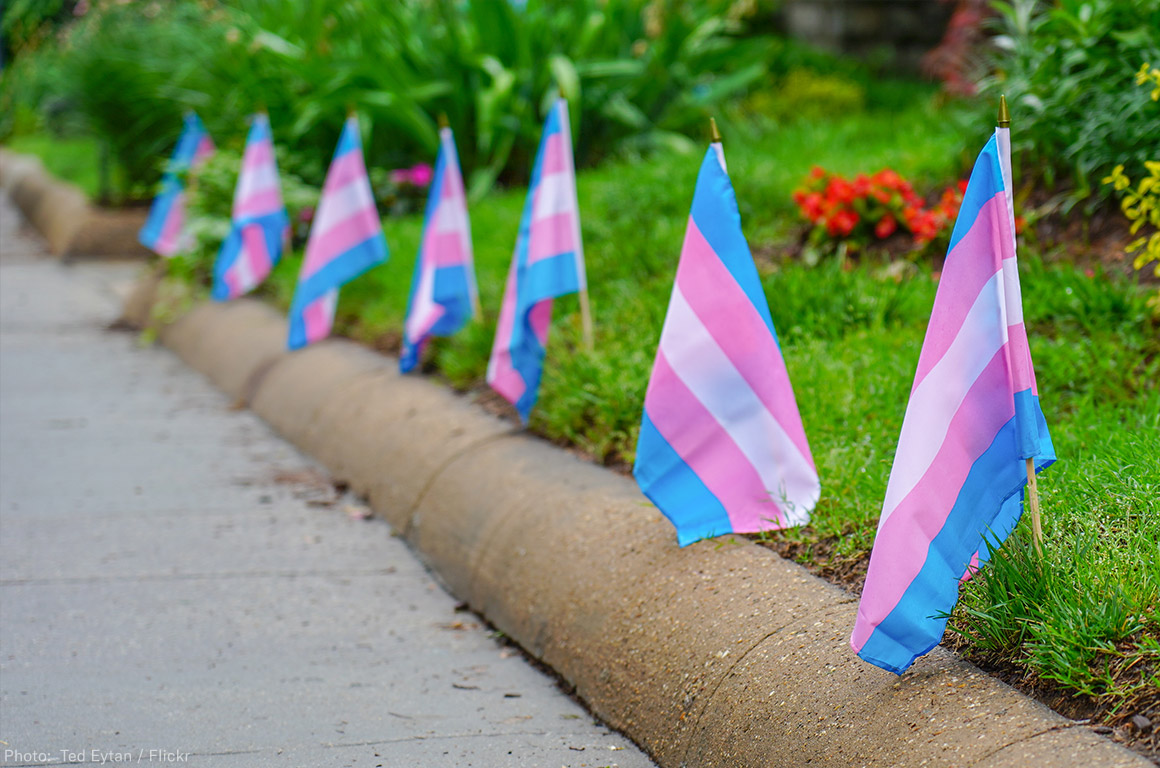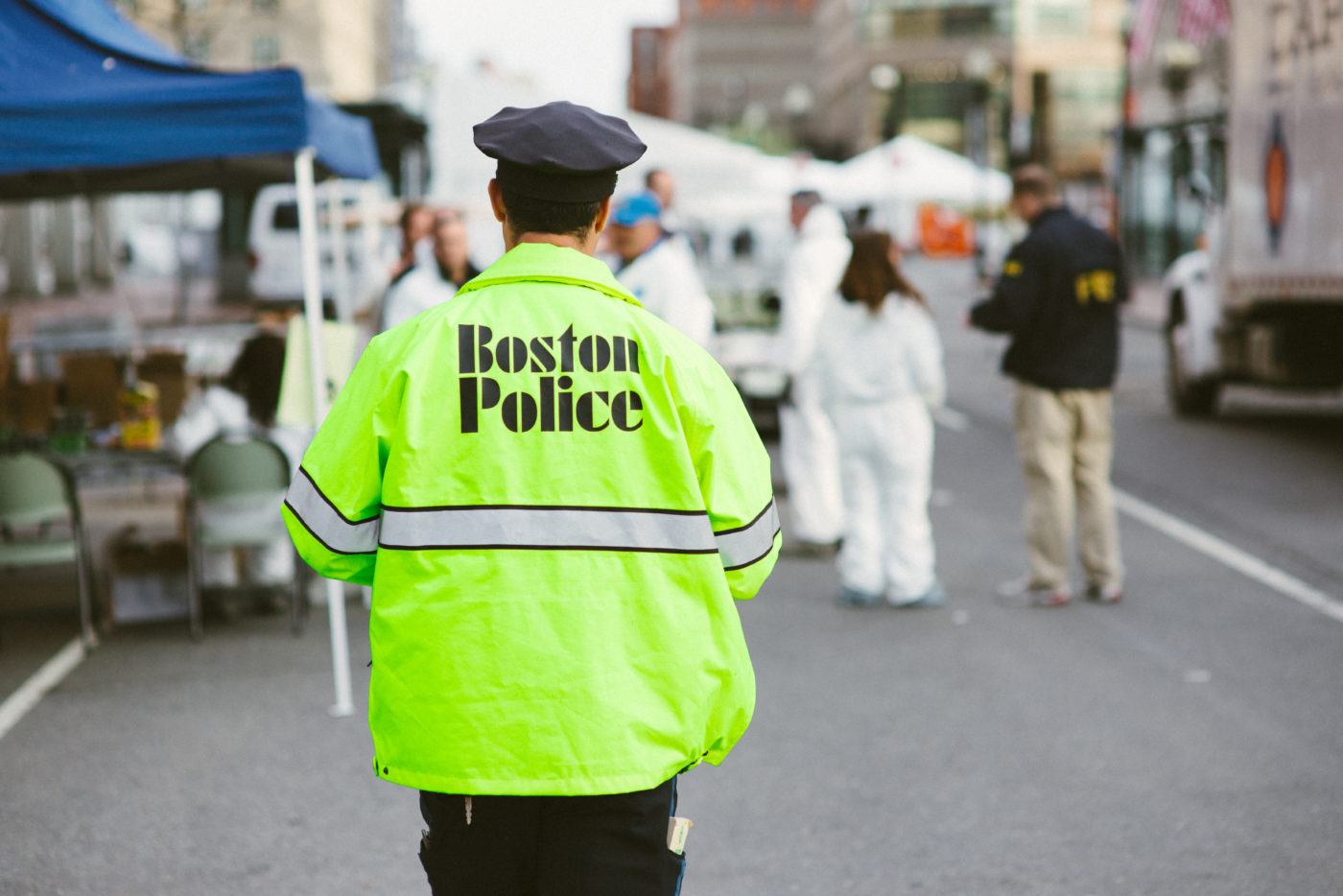Blog by Chase Strangio, Staff Attorney, ACLU LGBT & HIV Project
On Trans Day of Remembrance the trans community honors our dead. Too many names are read and remembered at vigils around the world marking the deaths of trans people who have been murdered during the year. This year is again on pace to be the deadliest year for transgender people in the United States. As of October, at least 22 trans people were killed, almost all of them women of color.
We look at their photos, say their names, light a candle and then, too often, we move on until we add a new name to the list.
Lethal violence against transgender people continues to escalate, but that is only one cause of death in our community. Existing data suggests that the life expectancy for trans women of color in the U.S. is somewhere in the mid-30’s. While many lose their lives because of individually perpetrated violence, many more die too soon because of restricted opportunities. Kicked out of homes or schools in their youth, subjected to employment and housing discrimination in adulthood, driven into the criminal legal system, and denied health care, trans people, particularly those of color, often face insurmountable barriers to survival.
Now, we remember our dead against the backdrop of a Trump administration driven to write us out of federal legal protections, eager to erase us. A month ago, The New York Times reported that a memo circulating across multiple federal agencies sought to excise transgender people from protection of the law.
We die because people don’t want us to live.
Remembrance is essential, but so too is action. We must, as artist Micah Bazant proclaimed in an adaptation of Mother Jones’ famous refrain, “honor our dead and fight like hell for the living.”
In this moment of ongoing crisis for our community, here are some concrete actions that can be taken for trans justice and survival.
Education. Since taking office, the Trump administration has argued that trans students should not be protected from discrimination under federal law. While the overwhelming majority of courts disagree and trans people remain protected under federal and constitutional law, trans students continue to face hostile conditions in school, leading many to be pushed out of secondary school altogether. Parents and educators can fight to create inclusive, supportive, and affirming environments for all students by including trans issues in curricula, implementing trans affirming policies, and ensuring that no student faces bullying or harassment.
Employment. Last month, the Trump administration told the Supreme Court that federal law prohibiting sex discrimination should not protect transgender workers. Though again, the overwhelming majority of courts disagree, discrimination against trans people persists. Employers and workers can fight to ensure that trans people are supported in the workplace and send a message that we are an essential part of the labor market that deserves the same protections available to all other workers. Check to make sure your workplace has policies prohibiting discrimination against LGBTQ people, including by affirmatively covering health care and ensuring access to restrooms for trans workers.
Arrest and Incarceration. Due to discrimination in housing, employment, and education, combined with family rejection, trans people face disproportionately high rates of involvement in the criminal legal system. Upon arrest, trans people are more likely to have bail set, but are less likely to be able to pay bail than cisgender people due to high rates of poverty and isolation from families of origin. Working to end mass incarceration, ending cash bail, and paying cash bail when set are critical steps to take in the fight to protect trans lives.
Immigration. The Trump administration’s attacks on immigrants affect many in the trans community who are fleeing violence in their birth countries. In the fight to end unconstitutional restrictions on asylum, including trans immigrants in the conversation is essential, as many face intersecting and compounded discrimination and trauma.
Connection. Connect with, believe, and see trans people. The community is demonized by fear-driven rhetoric that our lives and bodies pose threats to others. Yet we are here, existing and living our truths. Challenge your assumptions about what it means for us to live our truth. Ask yourself how you “really knew” your gender and consider that we, like you, just know who we are.
Creation. There is always more to be done. Watch your state legislatures for attacks on trans people. Disrupt anti-trans jokes or comments at your family holiday. Search your family history for the trans relatives who were erased. Do your research. Take on the burden so we don’t always have to.
Trans lives are on the line every day. Today, we remember those we have lost and urge a movement in defense of those who are still with us.
Date
Tuesday, November 20, 2018 - 2:15pm
Featured image
Show featured image
Hide banner image
Related issues
LGBTQ Rights
Show related content
Tweet Text
[node:title]
Type
Style
Standard with sidebar
Blog by Mary Holper and Claire Valentin
In the face of the Trump administration’s stepped-up deportation efforts, officials in Boston and other progressive cities have declared their communities safe spaces for immigrants. But behind the scenes, progressive havens like Boston are facilitating the deportations of some of our most vulnerable young people.
As the federal government’s rhetoric and action around immigration have sharpened and hardened, young immigrants are being systematically slandered and deprived of their rights here in Massachusetts. Too many are inaccurately and unfairly alleged to be involved in gangs, according to a Boston Police Department database, and as a result, find themselves on the fast track to deportation.
There’s a lot we don’t know about Boston Police Department’s “gang database” — which is why this week, the ACLU of Massachusetts, the Children’s Law Center of Massachusetts, and other groups filed a public records lawsuit to bring some transparency to the system. Here’s what we do know: Being included in it can have dire consequences for a young person’s life.
We know the tragic impact gang violence has on communities where it occurs. In fact, many of our clients are youth who fled Central America to escape such horrific violence. But ironically, they are now being detained or deported back to that violence merely because of who they are, who they know, and even what they wear.
What is particularly troubling is that these Central American youth are being accused of gang membership using evidence no stronger than a house of cards. Without their knowledge, young people of color in Boston go about their lives, earning “points.” Police officials decide what “points” apply to whom. You might be thinking: If the police say my client is a gang member, he must be. But the way police assign “points” enables law enforcement to label people as gang members even if they’ve never been suspected of any wrongdoing.
One of our clients caught by the database’s arbitrary point system is a Salvadoran teenager who fled gang violence in his home country. In Massachusetts, law enforcement officials labeled him a gang member not because he was arrested for gang violence or suspected of engaging in it. Rather they labeled him that way because he was the victim of an assault at school. The crime committed against him cost him eight points. He was “verified” when he was seen leaving school with other supposedly "verified" gang members. If a youth is seen with a “verified” gang member — who could very well be another innocent kid arbitrarily labeled — that’s two points. If he’s seen again with the same person — even if they’re engaging in innocuous conduct like standing at a bus stop or crossing a park — that’s another two points. If he’s seen at school with a “verified” gang member, that’s five points — even if they are sitting at a lunch table because they’ve been assigned to work on a group project together. Wearing a Chicago Bull’s hat, a black rosary, or even a blue shirt — no matter that it’s his school uniform — could earn him four points. Once he reaches 10 points, he’s a “verified” gang member. The police enter his name into the Boston Regional Intelligence Center’s Gang Assessment Database, which is shared with other law enforcement agencies.
Despite the fact that Boston has proclaimed itself a safe city for immigrants, the Boston Police Department is collaborating with Immigration and Customs Enforcement by making information in its “gang database” available to federal immigration authorities. That’s when we encounter the allegations: In immigration court, where a Department of Homeland Security prosecutor uses them as “evidence” that a client should be detained or deported. This system leads to false identifications. And in the immigration context, that has disastrous, life-altering consequences for some of the most vulnerable young people in Massachusetts.
Recently, a young client showed up to a meeting at our office wearing a Chicago Bulls hat, a four-point offense. Although the Bulls are one of the most popular basketball teams in the world, we had to advise him to stop wearing the hat. The client said he understood, paused, and then asked if his other hats were still okay to wear.
A sad thought crosses our minds when we have conversations like this with our clients: One way to protect them from being profiled, mislabeled by school police as gang members, and deported would be to advise them to stop attending school. Peer interactions can become the evidence against them in immigration court. In fact, it is hard to imagine how teenagers in neighborhoods that have a large population of Central American youth avoid being seen with “verified” gang members when there may be so many at their school, whose “verification” is unknown to them.
Boston aims to protect its immigrants. Every day in immigration court, we see how the gang database system undermines that promise for teenagers across the city.
Mary Holper is an Associate Clinical Professor at Boston College Law School and directs the law school’s Immigration Clinic. Claire Valentin is an attorney at the Children’s Law Center of Massachusetts.
Date
Wednesday, November 21, 2018 - 3:00pm
Featured image
Show featured image
Hide banner image
Related issues
Police Accountability
Immigrants' Rights
Racial Justice
Show related content
Pinned related content
ACLU demands records on Boston's "gang database" used in deportations
ACLU of Massachusetts v. Boston Police Department
Recommended reading on gang databases
Tweet Text
[node:title]
Type
Menu parent dynamic listing
Featured video (deprecated):
Style
Standard with sidebar
Date
Thursday, November 15, 2018 - 9:30am
Menu parent dynamic listing
Style
Standard with sidebar
Tweet Text
[node:title]
Pages

